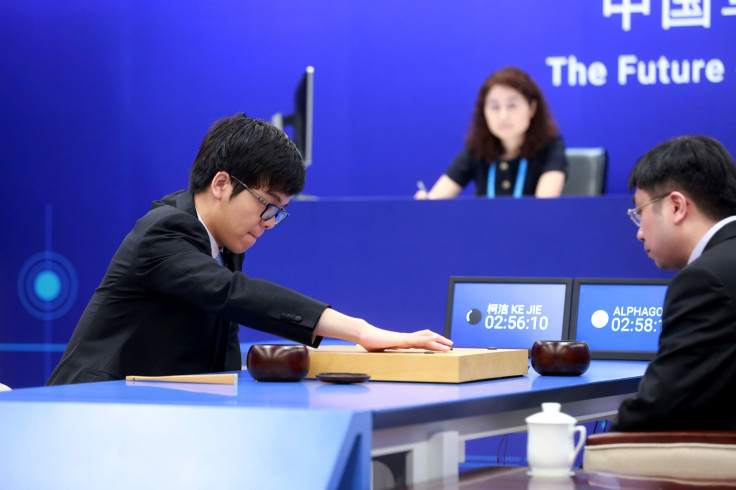Why did China censor DeepMind AlphaGo's match against 19-year-old world Go champion Ke Jie?
The Chinese government issued a censorship notice forbidding the broadcast of the match.

Google DeepMind's artificial intelligence software AlphaGo once again made history this week by defeating the world's best player in the ancient game of Go in China on Tuesday (23 May), but no one in the country was able to watch it happen.
The Chinese government reportedly issued a censorship notice to local broadcasters and online publishers forbidding them against broadcasting the man-versus-machine face-off, The Guardian reports.
"Regarding the Go match between Ke Jie and AlphaGo, no website, without exception, may carry a live stream," the notice read, China Digital Times reported. "If one has been announced in advance, please immediately withdraw it.
"Again, we stress: This match may not be broadcast live in any form and without exception, including text commentary, photography, video streams, self-media accounts and so on. No website (including sports and technology channels) or desktop or mobile apps may issue news alerts or push notifications about the course or result of the match."
Three Chinese journalists also told Quartz that they received oral instructions from local authorities that their organisations were not allowed to livestream the "Future of Go" summit taking place from 23 to 27 May. One reporter said that his publication was asked not to mention Google's name while reporting the event. Another said it was allowed to name Google, but not discuss any of Google's products in their reports.
Ke, a 19-year-old prodigy, lost his first match in a three-game contest against AlphaGo on Tuesday by a slim half a point. The 3,000-year old board-game is seen as a much more complex game than chess since it relies on a certain level of "human intuition".
"Last year, it was still quite humanlike when it played," Ke said after the game. "But this year, it became like a god of Go."
Last year, AlphaGo took down world Go champion Lee Sedol in a five-game series in Seoul, South Korea.
Interestingly, the 5-day Future of Go summit held in Wuzhen, China, was organised in collaboration with the China Go Association and the Chinese government.
Game went to a count. #AlphaGo won by just half a point, the closest margin possible. Ke Jie played a great game.
— Demis Hassabis (@demishassabis) May 23, 2017
#AlphaGo wins game 1! Ke Jie fought bravely and some wonderful moves were played.
— Demis Hassabis (@demishassabis) May 23, 2017
The reasons for the coverage ban are unclear; however, the ban does accentuate China's complicated relationship with Google. In 2010, Google said it would stop censoring search results and decided to pull out of China following a cyberattack that affected numerous Gmail accounts of Chinese human rights activists.
Other services such as Facebook and Twitter are also unavailable in China.
"The victory took place in China, a rising power in the field of artificial intelligence that is increasingly seen as a rival to the United States," The New York Times reports. "Chinese officials perhaps unwittingly demonstrated their conflicted feelings at the victory by software backed by a company from the United States, as they cut off live streams of the contest within the mainland even as the official news media promoted the promise of artificial intelligence.
All three matches are livestreamed by DeepMind on Google's YouTube, which is also blocked in China along with the company's other services. However, multiple streaming sites such as bilbili.com offered their own versions of the game by replicating it move by move in real-time, allowing viewers to follow the historic match.
"Anything that demonstrates that something special about China has turned out to be just another artificial intelligence problem that Google is better solving than any other company is additionally problematic," Clay Shirky, a professor at New York University Shanghai, told NYT. "Because it threatens the specialness of the culture."
The next two matches between AlphaGo and Ke are scheduled for Thursday and Saturday.
© Copyright IBTimes 2024. All rights reserved.





